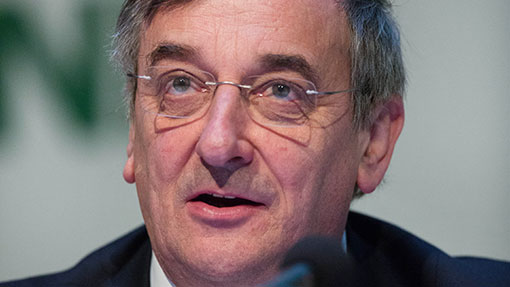Raymond fights to keep crop protection toolbox

NFU president Meurig Raymond is challenging Defra to safeguard valuable crop protection products to help UK farmers remain competitive and productive.
Mr Raymond will issue the plea to farm minister George Eustice during a Q&A session for farming organisations at the Kent Show on Friday (11 July).
Since 2001, farmers in the EU have lost more than half of the 850 active ingredients registered at this time.
See also: Regulatory threats to pesticides
The NFU is campaigning to save crop protection products amid fears that the remaining 422 active ingredients could be halved again in the lifetime of the new European Parliament.
For example, the future of neonicotinoid seed treatment insecticides, used in crops such as cereals, oilseed rape and sugar beet, is hanging in the balance.
The EU banned neonicotinoids for two years in December following concerns from green groups and a number of scientific reports claiming they are responsible for a decline in bee numbers.
Bayer CropScience and Syngenta, the main producers of neonicotinoids have strongly denied such claims and claim the products are safe when used responsibly and according to the label.
Last week, Syngenta withdrew an application to the UK government to get emergency use of neonicotinoids for this growing season. The company said government delays in government approval for the application meant any EU derogation could not be granted in time for autumn planting.
At last month’s Cereals event, the NFU, Crop Protection Association and Agricultural Industries Confederation launched a Happy Harvest campaign, which aims to safeguard crop protection tools and food production in the UK.
Speaking ahead of the three-day Kent Show in Maidstone (11-13 July), Mr Raymond said: “The reduction in the range of active ingredients in agrichemicals available to farmers in crop production is stalling our industry at a time when we should be boosting production to feed a burgeoning world population.
“On behalf of NFU members we shall be asking Defra, what is the longer term prospect of allowing neonicotinoid seed dressing on oilseed rape in the near future?”
Mr Raymond will also be seeking commitments from the minister about the future funding of research and development for agriculture and horticulture, notably for East Malling Research in Kent.
Through its new UK strategy for agricultural technologies, the government is offering agri-tech funding to support businesses and academia in developing innovative solutions in response to the global challenges of a rising population and increasing demands on land, water and energy.
